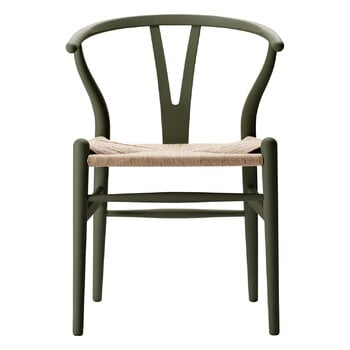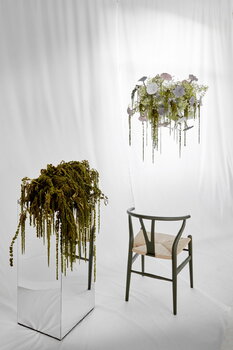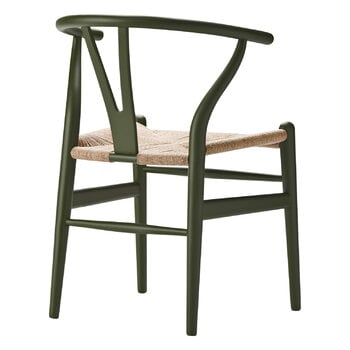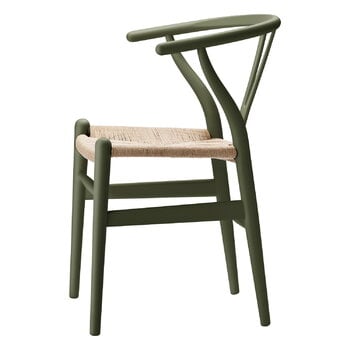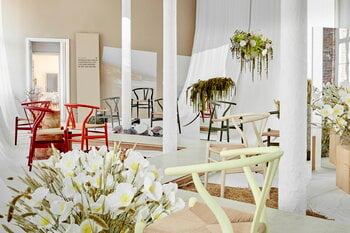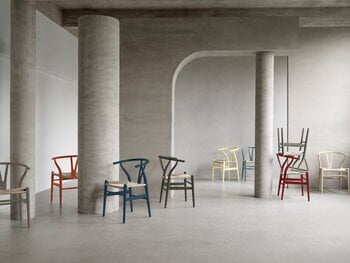To celebrate the more than 70 years of the CH24 Wishbone collection, Carl Hansen & Søn asked designer Ilse Crawford to design nine new colours for the iconic chairs. Crawford created a soft yet intense colour palette inspired by the expressionist paintings of the renowned Danish artist Per Kirkeby and the raw beauty of the Nordic landscapes, plants and soil. The eco-friendly, water-based matte colours are launched one by one during 2022.
The CH24 chair, also known as Wishbone, is a true Danish design classic. Designed by Hans J. Wegner in 1949, the Wishbone chair has been produced by Carl Hansen & Søn since 1950.
When designing the CH24 chair, Wegner wanted to combine the backrest and armrests into one single piece. To support the steam-bent top, he developed the classic Y-shaped back, which earned the chair the name Wishbone. The end result was an elegant and graceful chair with seating comfort in a class of its own.
The manufacturing process of the Wishbone chair involves more than 100 steps, most of which are still made by hand. The hand-woven seat alone takes a skilled craftsman about one hour and 120 meters of paper cord to make. The carefully finished Wishbone is a masterpiece of traditional craftsmanship and Danish design.
